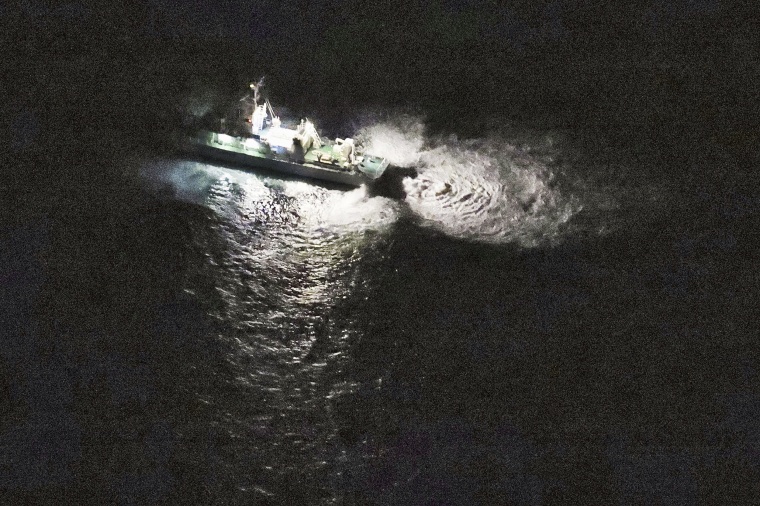TOKYO — A U.S. military Osprey aircraft crashed into waters off southern Japan on Wednesday morning, killing at least one person and leaving several more missing, authorities said.
A regional coast guard spokesperson confirmed to NBC News that the plane crashed into the ocean near Yakushima, an island about 45 miles south of the Kagoshima region on the southern main island of Kyushu.
The coast guard said in an earlier statement that eight people were on board the plane, a figure that was revised downward. But then later on Wednesday, the Air Force Special Operations Command issued a statement, saying eight were on board.
The coast guard confirmed that one man was recovered from the sea “unconscious and was not breathing” 1.8 miles from Anbo Port, which is near the accident site on the eastern side of Yakushima, by a boat from the Yakushima Town Rescue Center.
He was given CPR and taken to Anbo Port, it said. The unnamed crew member was later pronounced dead.
There were no immediate details available on the status of the aircraft or the rest of those on board.
The coast guard said in a statement that a member of the public called 118, Japan’s version of 911, at 2:47 p.m. (12:47 a.m. ET). The coast guard said it immediately deployed patrol vessels and aircraft to the scene.
At 4 p.m. (2 a.m. ET) a rescue team including boats from the coast guard and a local rescue center found “wreckage-like debris” and an overturned life raft, the coast guard said. There were no people in the raft, the coast guard said.

The CV-22B Osprey is based at Yokota Air Base and assigned to the 353rd Special Operations Wing, according to the AFSOC.
The aircraft was involved a "mishap while performing a routine training mission off the shore of Yakushima Island," the Air Force said.
“In light of this incident, the minister of defense has asked the relevant departments to cooperate with the Japan Coast Guard to confirm whether or not there are any victims and to do their utmost to rescue them,” Hiroyuki Miyazawa, Japan’s vice defense minister, told local reporters.
Asked why he’d not called the incident a crash, Miyazawa said: “The U.S. side explained to us that the pilot did his best until the very end, so we’re using the term ‘emergency water landing.’”
The Osprey is a hybrid aircraft famous for its unique "tilt-rotor" flight system, which allows it to take off and land like a helicopter but fly like an airplane.
There have been a number of fatal accidents involving the aircraft in recent years.
An Osprey with 23 U.S. Marines on board crashed in Australia in August during a routine training exercise, killing three including its pilot.
All five U.S. Marines on board an MV-22B died after it crashed east of San Diego during a training mission in June 2022, following the death of four U.S. Marines on board an MV-22 in Norway three months earlier.
The Defense Department stood by its use of the plane in 2015 after one Marine was killed and 21 injured in a crash at a military base in Hawaii.
The CV-22B is fitted with rotors on each wing, allowing it to take off and land like a helicopter but also fly like a turboprop airplane.
It’s generally used “to conduct long-range infiltration, exfiltration and resupply missions for special operations forces,” according to the Air Force.
Arata Yamamoto reported from Tokyo, Patrick Smith from London and David K. Li from New York City.
CORRECTION (Nov. 29, 2023, 4:39 p.m. ET): A previous version of this article misstated when an Osprey aircraft crashed during a training mission with five U.S. Marines on board. It was in June 2022, not August 2022.
CORRECTION (Nov. 29, 2023, 5:29 p.m. ET): A previous version of the map in this article misattributed the crash location source. The source was the Japanese Coast Guard, not the U.S. Coast Guard.

